2024 Summer Reading Program
Strong Voices: Empowering Student Citizenship
The Bill of Obligations: The Ten Habits of Good Citizens
by Richard Haass
This year’s summer reading theme is “Strong Voices: Empowering Student Citizenship.”
The program is built around a central text, The Bill of Obligations, by Richard Haass.
We hope that this very straightforward and clear discussion of basic expectations for American citizenship will help demystify the democratic process, assist you in conducting constructive conversations, and encourage you to enact positive change in your communities.
Contact Information
Chrissie Bumgardner
Co-Director, First Year Experience
bumgardner@meredith.edu
Lisa Brown
Co-Director, First Year Experience
lmbrown@meredith.edu
Listen
Amended Podcast (Episodes 1&2) (Content Warning: Episode 2 includes discussions of sexual and racial violence, which may be distressing for some listeners. Listener discretion is advised.
Summer Reading Questions
Opening Question:
Why do you think Meredith College selected this book for this year’s summer reading program?
Question for Part One:
The United States Constitution was ratified over 230 years ago and has been amended (changed) only 27 times during that period. Does it currently fulfill its goal of creating “a more perfect union?” What changes would you like to see in this governing document?
Question for Obligation I: Be Informed
Where do you currently get your news?
Do you feel it is trustworthy?
How do you determine if a source is reliable?
Questions for Obligation II: Get Involved
Besides voting, how can you take an active part in your democracy as a student? What are some ways you can get involved?
The Bill of Obligations suggests that parents, corporate leaders, and churches can all be sources of influence. In addition, sports figures, actors, and musicians are also capable of impacting their fans. Who has influenced, or inspired, you to be a good citizen, and how did they make an impact on you?
Question for Obligation III: Stay Open to Compromise
How would you define compromise in the context of the political environment? As a college student, what situations might require compromise? When is it right to compromise, and when to stand firm?
Questions for Obligation IV: Remain Civil
The author states that “disagreements are inevitable in a democracy.” When you are communicating with someone who has a different opinion or perspective than you do, what are some strategies you can use to have an effective dialogue?
How has social media contributed to incivility?
Question for Obligation V: Reject Violence
Why is it important to reject violence as a means of reaching political gains in a democracy? What are some examples of “peaceful channels” through which members of a democracy can work to reach their goals?
Question for Obligation V: Reject Violence
Why is it important to reject violence as a means of reaching political gains in a democracy? What are some examples of “peaceful channels” through which members of a democracy can work to reach their goals?
Question for Obligation VI: Value Norms
How are norms different from laws? What are some examples of norms that govern the behavior of our government leaders? What are some examples of norms that have eroded in recent years?
Question for Obligation VII: Promote the Common Good
What comprises the “common good” for a democratic society? For our College community? What are some principles that you think are foundational to building a welcoming, inclusive, and engaging community on our campus?
Question for Obligation VIII: Respect Government Service
What are some of the benefits the author believes would come from starting some sort of voluntary national service program?
If the United States were to establish a voluntary national service program, what do you think the incentives would have to be for people to join it? Haass proposes reduced or free tuition for college, or forgiveness of student loans. Would incentives like these be enough to convince Americans to participate?
Question for Obligation IX: Support the Teaching of Civics
Meredith College does not require courses typically thought of as civics classes (they can be taken as part of General Education). Should Meredith students be required to take “civics” classes? Why or why not?
Question for Obligation X: Put Country First
Haass argues that part of putting country first is demonstrating “loyal opposition.” Why is “loyal opposition” integral to sustaining our democracy? Can you think of moments in your own life when you witnessed or exhibited “loyal opposition”?
Tips for Constructive Communication
- Listen to understand
- Be aware of your own biases and assumptions
- Speak from your own unique experience
- Use “I” statements
- Talk about ideas, not people
- Words matter – be careful how you use them
"American democracy will work and reform will prove possible only if obligations join rights at center stage."
Richard Haass
The Bill of Obligations


